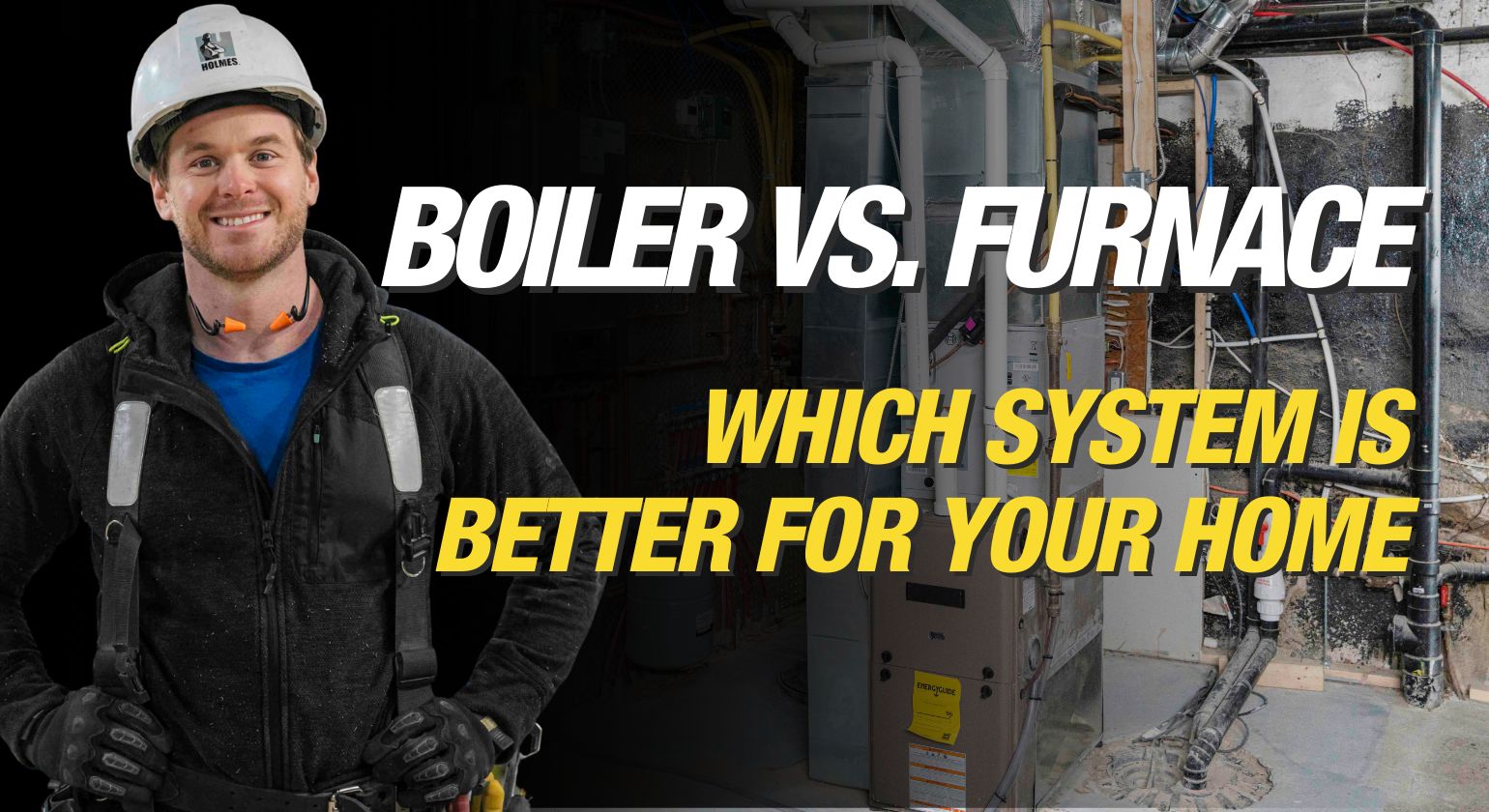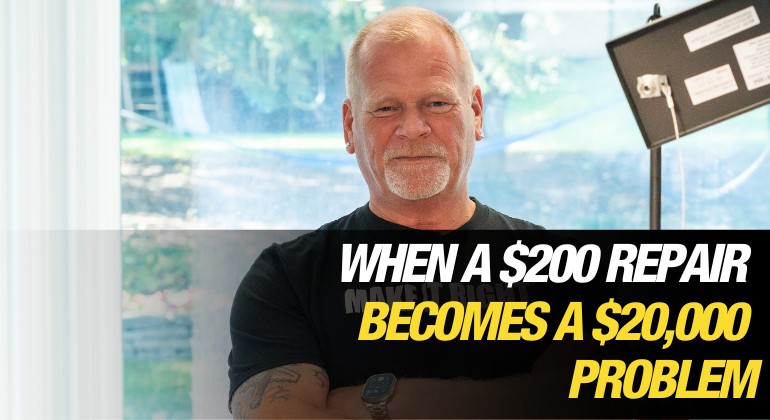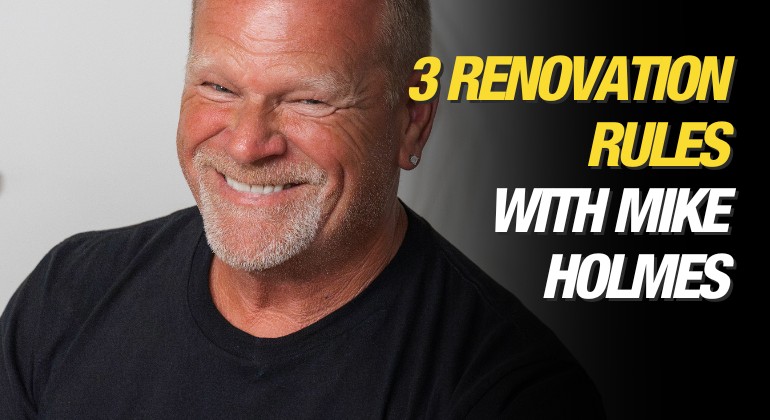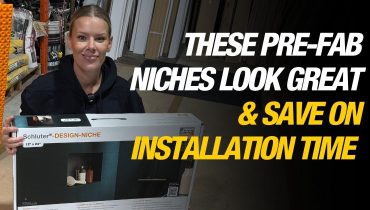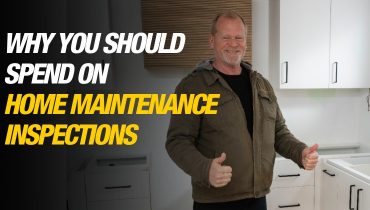When Lisa Marie and I started planning our new primary bathroom, we agreed on one thing right away. We had to use Schluter Systems to ensure the wet-room bathroom waterproofing...
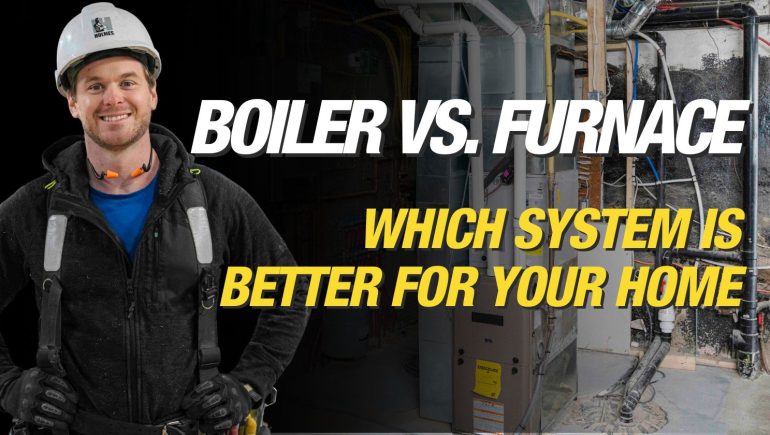
Boiler Heat vs Furnace – Which Is Better For You?
By Mike Holmes Jr
Mike’s Advice / Buying & Selling Your Home
Friday, January 17th, 2025 @ 2:38pm
What is the Best Heating System For My Home – Boiler vs Furnace?
When I started planning the heating system for my new home build, I quickly realized how much there was to learn about the options out there. Both systems keep your home warm but they are quite different. The big question for me was, boiler heat vs. furnace, which one should I go with?
I’m no HVAC expert, but I did my research and consulted with some of my HVAC experts I discovered some important differences to consider when choosing between a boiler and a furnace. If you’re trying to decide, here’s what I’ve learned along the way and how I’m thinking about what will work best for my family and home.
What is the Difference Between a Boiler and a Furnace?
Boilers and furnaces do the same job—keeping your home warm. However, they do it in completely different ways.
What Is a Boiler?
Boilers heat your house using steam or water. This is then distributed using radiant floor systems, baseboard heaters, or radiators.
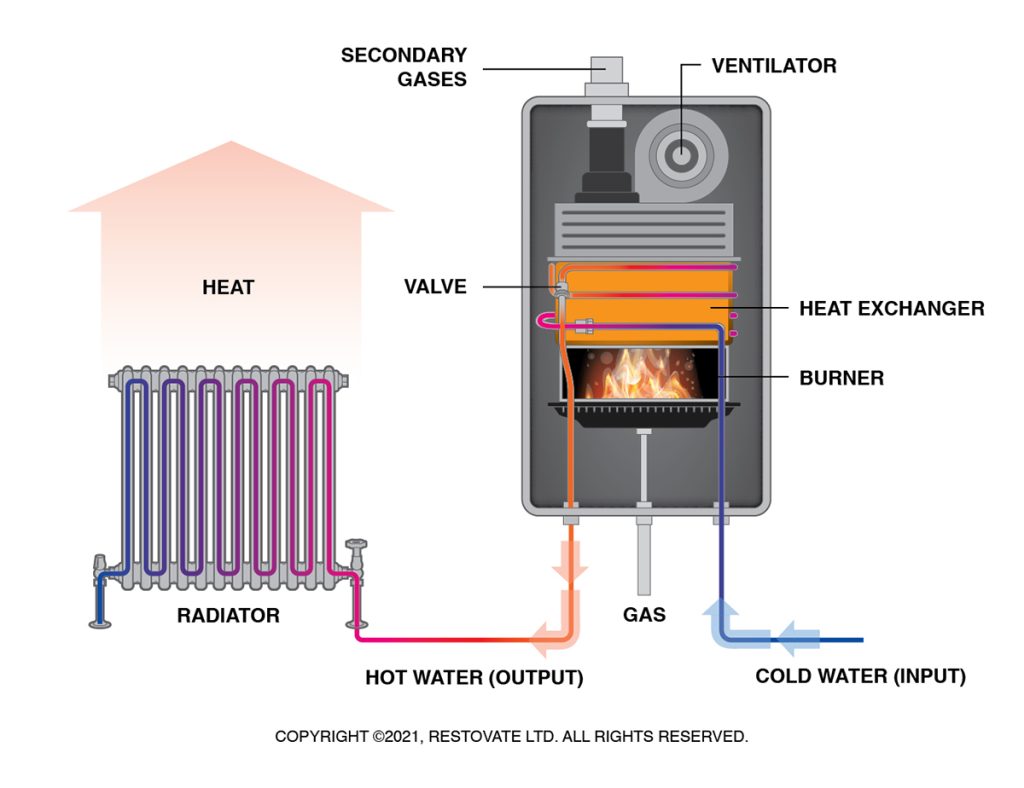
How Does A Boiler System Work
Some of today’s boilers are combi-systems, and double as water heaters, typically heated by natural gas. They are energy-efficient, quiet, and great for consistent heat.
READ MORE
What Is a Furnace?
Furnaces, on the other hand, use air to heat your home and typically run on natural gas. When the thermostat signals a need for heat, a furnace’s ignition system ignites the gas in the burner. The burning gas produces a flame that heats up the heat exchanger, which then transfers the heat to the surrounding air.
Once the air is heated, a blower fan pushes it through the ductwork to warm the room while the combustion gases produced during the burning process are vented out safely.

Although it usually heats your house more quickly, furnaces can sometimes cause drafts and make the air dry.
RELATED
Does Climate Affect Which System I Pick?
Where you live can play a big role in what heating system makes sense. For example:
- Cold Climates: Boilers are great for regions with long, harsh winters because they provide steady, reliable heat that doesn’t leave rooms feeling drafty.
- Moderate Climates: Furnaces may be a better choice if you live in a place with milder winters. They’re cost-effective and heat up your home quickly when temperatures drop.
I live in Canada, where winters can be brutal. For me, a boiler is really appealing because of its ability to provide consistent heat even on the colder days.
What Factors Should I Consider When Choosing A Boiler?
If your home already has a boiler and radiators or baseboards, upgrading to a new modern boiler is usually the most efficient and easiest option.
If your boiler is 20-30 years old, you might want to consider replacing it with a more efficient model.
A boiler is the right choice if you want a quiet, consistent, energy-efficient heating system or if you want to combine radiant floor heating. However, to ensure your system is installed properly and is the right fit for your home it is essential you consult with a HVAC professional and choose a durable and dependable system.
Here are a few things that can help you determine if a boiler is the right fit for you:
- Energy Efficiency: Modern boilers are energy-efficient, and they use less fuel to heat your home, saving on your energy bills.
- More Consistent Heat: Boilers provide consistent, even heat to each room in your home, without the drafts and inconsistent temperatures you might get with forced-air systems.
- Boilers are Quiet: Because boilers don’t rely on blowers or fans, like furnaces, they are quiet.
- Better Indoor Air Quality: Boilers are a healthier choice for those with allergies or breathing issues because they don’t circulate dust, allergens or dander around your home.
- Radiant Floor Heating: Boilers provide consistent warmth to radiant floor systems.
- Works Great with Zoned Heating: Boilers are excellent for zoning as they allow you to regulate the temperature in various parts of your home. Great for larger homes with different heating needs.
- Low Maintenance: Boilers require little to no maintenance other than an annual service tune-up done by an HVAC pro. While furnaces require an annual inspection but also need air filters changed monthly or quarterly depending on the model.
What Factors To Consider When Choosing A Furnace?
A furnace provides a fast, flexible and cost-effective way to heat your home. Unlike a boiler, which uses water to deliver heat, a furnace warms your home by blowing heated air through a ductwork system.
If your home is already equipped with ductwork for a central air conditioning system, an upgrade to a high-efficiency furnace is typically the easiest and most economical option, as you will be using the existing ductwork to distribute the warm air, saving you time and money on installation.
A furnace is the right choice if you’re looking for quick, affordable heating and have ductwork in place —or if you want a system that integrates easily with central A/C. Look for high-efficiency furnaces that deliver excellent performance while saving energy.
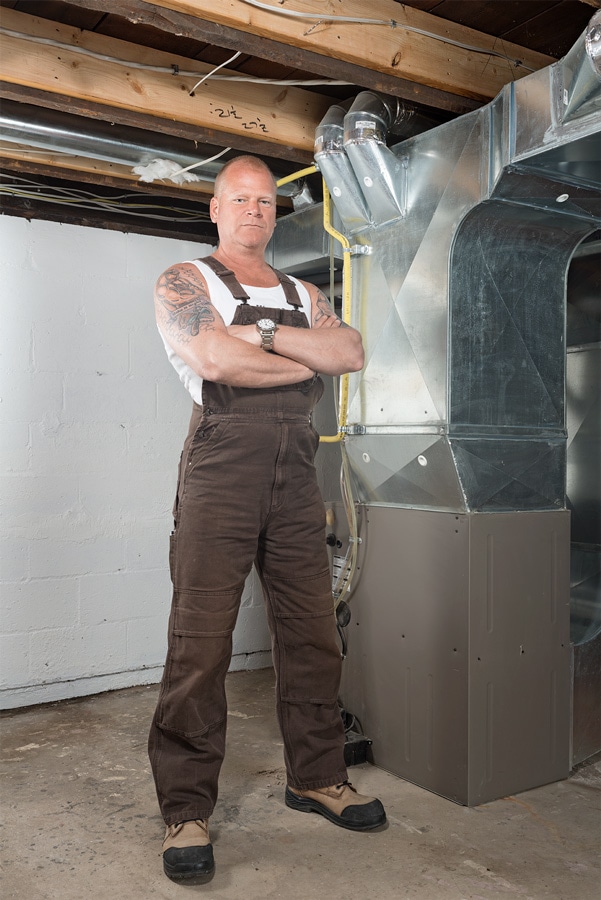
A furnace is the right choice if you’re looking for quick, affordable heating and have ductwork in place
A furnace will also be the right fit for you if you considering the following:
- Quick Heating Power: Furnaces heat your home up quickly. Ideal for colder climates or where temperatures suddenly drop and large homes —you want your home to be warm fast!
- Lower Upfront Costs: Furnaces are generally less money to purchase and install compared to boilers. If budget is a factor, then a furnace may be a better fit!
- Short on Installation Space: Furnaces are typically smaller and take up less space than boilers because they don’t require a water tank or pipes for distribution.
- Need Both Heating and Cooling: If you plan on pairing you heating system with central air, a furnace is the way to go, as adding or upgrading the ductwork is simple.
- Efficient Power and Technology: Modern furnaces, particularly high-efficiency versions are extremely energy-efficient and use cutting-edge technology to maximize heat output while using less fuel.
READ MORE
Why You Should Always Consult an HVAC Professional
Choosing the right heating system for your home isn’t a one-size-fits-all decision. Many factors, including your home’s size, insulation, climate, and existing infrastructure, can influence the best option for your needs. That’s why working with an HVAC professional is essential.
Here’s how an HVAC expert can help:
- Home Assessment: They’ll evaluate your home’s layout, size, and current heating system to recommend the most efficient solution.
- Energy Efficiency Guidance: Professionals can help you select systems that meet energy efficiency standards and reduce utility costs.
- Proper Installation: Improper installation can reduce efficiency and lead to costly repairs. An experienced pro ensures everything is installed correctly.
- System Sizing: An HVAC expert will calculate the right system size for your home, avoiding issues like uneven heating or wasted energy.
- Ongoing Maintenance: They can guide you on regular maintenance to keep your heating system running efficiently and extend its lifespan.
Remember, while online research is helpful, nothing beats personalized advice from a trusted HVAC professional.
READ MORE
Why Should I Choose A Boiler vs Furnace?
Which heating system is right for you depends on your needs. I’ve always been big on building homes that don’t just look great but are also environmentally friendly and cost-effective to run. Boilers check a lot of boxes for me.
However, if you want a system that also works with central air conditioning and costs less upfront, a furnace could make more sense.
READ MORE
Common FAQs About Boilers and Furnaces
1. What’s more energy-efficient: a boiler or a furnace?
Boilers are generally more energy-efficient because they use water to transfer heat, which retains thermal energy better than air. However, high-efficiency furnaces can also deliver excellent energy savings.
RELATED
2. How long do boilers and furnaces last?
- Boilers: Typically last 15-30 years with proper maintenance.
- Furnaces: Usually last 15-20 years, depending on the model and upkeep.
3. Can I install radiant floor heating with a furnace?
Radiant floor heating works exclusively with boilers, as it relies on heated water to distribute warmth.
4. What are the upfront costs for boilers vs. furnaces?
Boilers generally have higher upfront costs due to installation and equipment, while furnaces are more affordable initially but may have higher operating costs over time.
Don’t forget to check for tax credits & rebates in your area.
5. How do I know if my current system needs replacement?
Look out for these signs:
- Uneven heating or cold spots
- Rising energy bills
- Frequent repairs
- System over 15 years old
Boilers and furnaces are both good choices for heating your home. However, always work with an HVAC professional who will work with you, and take into account the climate that you live in, the existing infrastructure and your personal preference. With a professional at your side, they will ensure you make the best possible decision for your home.
READ NEXT
Do You Know What’s In Your Furnace Room?
Your Guide to Renovating It Right – Room By Room
